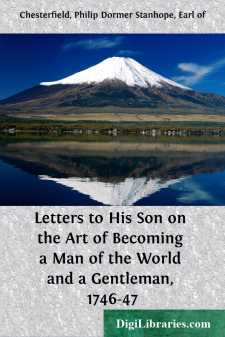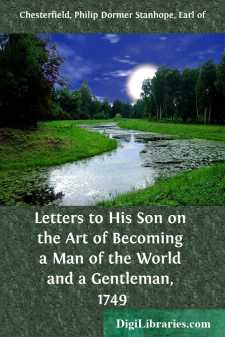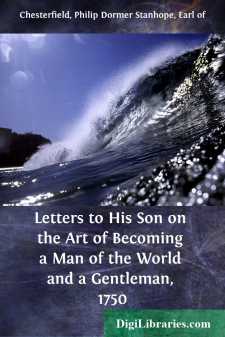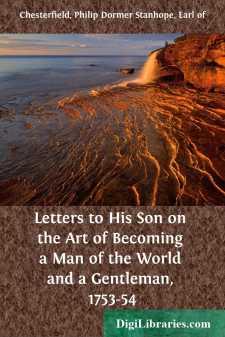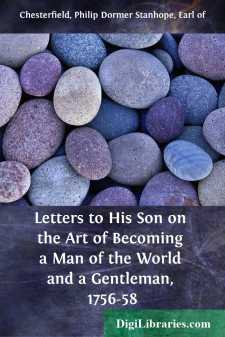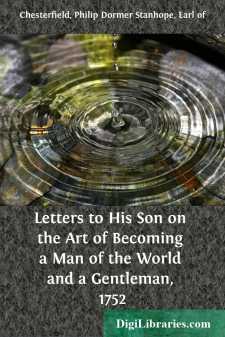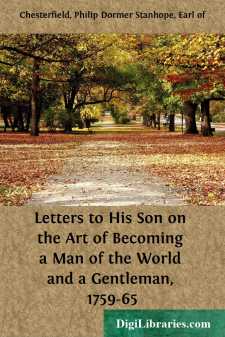Categories
- Antiques & Collectibles 13
- Architecture 36
- Art 48
- Bibles 22
- Biography & Autobiography 813
- Body, Mind & Spirit 142
- Business & Economics 28
- Children's Books 15
- Children's Fiction 12
- Computers 4
- Cooking 94
- Crafts & Hobbies 4
- Drama 346
- Education 46
- Family & Relationships 57
- Fiction 11828
- Games 19
- Gardening 17
- Health & Fitness 34
- History 1377
- House & Home 1
- Humor 147
- Juvenile Fiction 1873
- Juvenile Nonfiction 202
- Language Arts & Disciplines 88
- Law 16
- Literary Collections 686
- Literary Criticism 179
- Mathematics 13
- Medical 41
- Music 40
- Nature 179
- Non-Classifiable 1768
- Performing Arts 7
- Periodicals 1453
- Philosophy 64
- Photography 2
- Poetry 896
- Political Science 203
- Psychology 42
- Reference 154
- Religion 513
- Science 126
- Self-Help 84
- Social Science 81
- Sports & Recreation 34
- Study Aids 3
- Technology & Engineering 59
- Transportation 23
- Travel 463
- True Crime 29
Letters to His Son on the Art of Becoming a Man of the World and a Gentleman, 1746-47
Categories:
Description:
Excerpt
The proud Lord Chesterfield would have turned in his grave had he known that he was to go down to posterity as a teacher and preacher of the gospel of not grace, but—"the graces, the graces, the graces." Natural gifts, social status, open opportunities, and his ambition, all conspired to destine him for high statesmanship. If anything was lacking in his qualifications, he had the pluck and good sense to work hard and persistently until the deficiency was made up. Something remained lacking, and not all his consummate mastery of arts could conceal that conspicuous want,—the want of heart.
Teacher and preacher he assuredly is, and long will be, yet no thanks are his due from a posterity of the common people whom he so sublimely despised. His pious mission was not to raise the level of the multitude, but to lift a single individual upon a pedestal so high that his lowly origin should not betray itself. That individual was his, Lord Chesterfield's, illegitimate son, whose inferior blood should be given the true blue hue by concentrating upon him all the externals of aristocratic education.
Never had pupil so devoted, persistent, lavish, and brilliant a guide, philosopher, and friend, for the parental relation was shrewdly merged in these. Never were devotion and uphill struggle against doubts of success more bitterly repaid. Philip Stanhope was born in 1732, when his father was thirty-eight. He absorbed readily enough the solids of the ideal education supplied him, but, by perversity of fate, he cared not a fig for "the graces, the graces, the graces," which his father so wisely deemed by far the superior qualities to be cultivated by the budding courtier and statesman. A few years of minor services to his country were rendered, though Chesterfield was breaking his substitute for a heart because his son could not or would not play the superfine gentleman—on the paternal model, and then came the news of his death, when only thirty-six. What was a still greater shock to the lordly father, now deaf, gouty, fretful, and at outs with the world, his informant reported that she had been secretly married for several years to Young Hopeful, and was left penniless with two boys. Lord Chesterfield was above all things a practical philosopher, as hard and as exquisitely rounded and polished as a granite column. He accepted the vanishing of his lifelong dream with the admirable stolidity of a fatalist, and in those last days of his radically artificial life he disclosed a welcome tenderness, a touch of the divine, none the less so for being common duty, shown in the few brief letters to his son's widow and to "our boys." This, and his enviable gift of being able to view the downs as well as the ups of life in the consoling humorous light, must modify the sterner judgment so easily passed upon his characteristic inculcation, if not practice, of heartlessness.
The thirteenth-century mother church in the town from which Lord Chesterfield's title came has a peculiar steeple, graceful in its lines, but it points askew, from whatever quarter it is seen. The writer of these Letters, which he never dreamed would be published, is the best self-portrayed Gentleman in literature. In everything he was naturally a stylist, perfected by assiduous art, yet the graceful steeple is somehow warped out of the beauty of the perpendicular. His ideal Gentleman is the frigid product of a rigid mechanical drill, with the mien of a posture master, the skin-deep graciousness of a French Marechal, the calculating adventurer who cuts unpretentious worthies to toady to society magnates, who affects the supercilious air of a shallow dandy and cherishes the heart of a frog....


